
TU Dublin: A Beacon for Sustainability
Who we are
TU Dublin was established on 1st January 2019 and is Ireland’s first Technological University. The University is a leader in STEM disciplines and it also supports the largest cohort of students of business, media, culinary arts, and the creative and performing arts. A major infrastructural development plan is underway that involves investment of over €500 million in new, state-of-the-art, technology-enabled facilities to enhance our students’ experience.
The UN Sustainable Development Goals (SDGs) and pillars of People, Planet, and Partnership are at the core of TU Dublin’s Strategic Intent 2030. Our vision is to be a ’Beacon for Sustainability’. Our case study demonstrates our success through two important and innovative projects that are pioneering in national efforts to decarbonize.
What we did
In 2023, we undertook several initiatives to reduce our environmental impact, develop solutions for mitigating and adapting to climate change, and increase knowledge and skills for sustainability. Two major achievements, and the area of focus for our case study, relate to our participation in the development of a District Heating Network in Tallaght and the development of a Deep-bore Geothermal Heating System in Grangegorman. Both projects are pioneering in national efforts to decarbonize.
In Tallaght, we partnered with South Dublin County Council, Amazon AWS and other stakeholders to develop the first low-carbon sourced district heating system in Ireland. District heating is a form of energy infrastructure where both space and water heating is provided to a local network of buildings from a central energy plant. Through steam or hot water produced at the plant, district heating systems transmit constant heat through a network of insulated underground pipelines to local buildings. In the case of the Tallaght District Heating System (DHS), excess heat from the Amazon AWS data centre in Tallaght is used to provide low-carbon heat to the network.
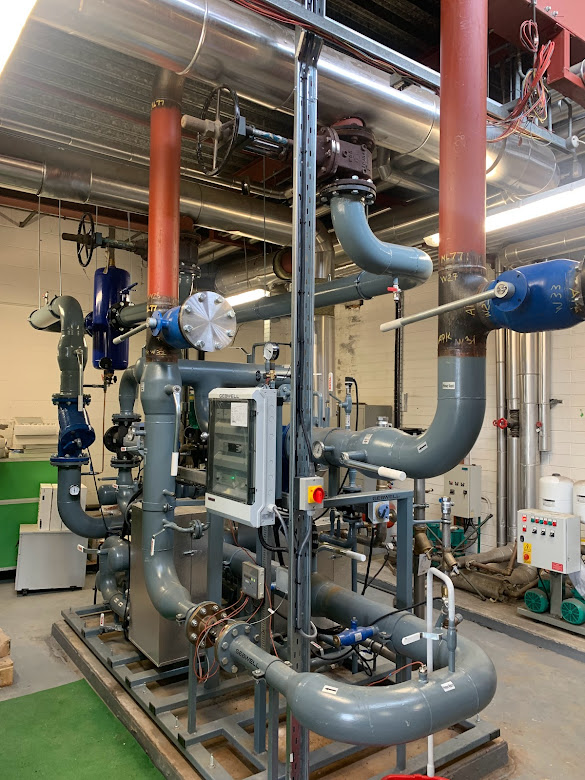
District Heating System Skid at TU Dublin Tallaght Campus
The system developed through this partnership project supplies heat to the Main Building on the Tallaght Campus, to the new Sports-Science, Health, and Recreation Building, and other buildings being added. The network also serves South Dublin County Council offices, and a new residential scheme is also being advanced.
A second major decarbonisation initiative, in partnership with Geological Survey Ireland (GSI) and CODEMA, was to develop a deep bore geothermal well on the Grangegorman campus. This is the first geothermal demonstration project in Ireland and the goal is to provide renewable heat to the already installed District Heating Network in Grangegorman, replacing existing gas-fired boilers with a geothermal system.
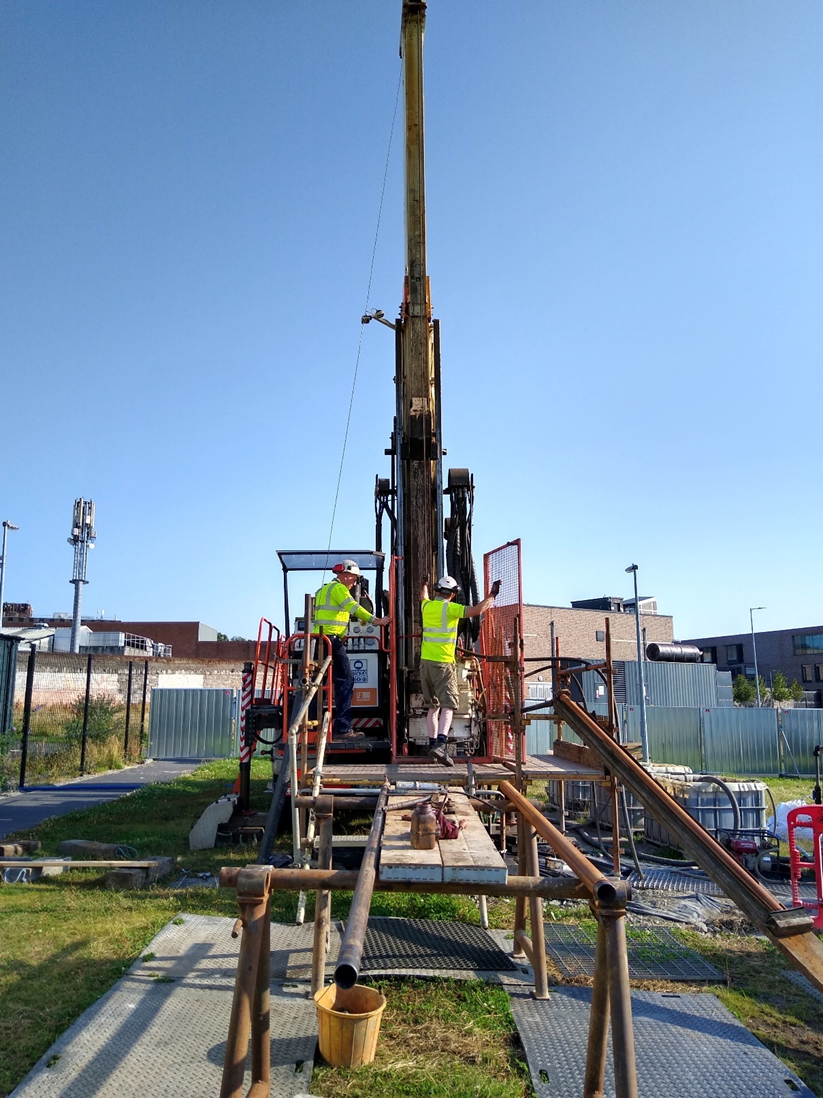
Geothermal Explorations at TU Dublin Grangegorman Campus
These two projects are examples of many initiatives undertaken to support Climate Action by TU Dublin. We have contributed to the development of sustainable cities across several other areas, including in air quality – as part of the UN Globe Project, and in biodiversity, where each of TU Dublin’s three main campuses worked in conjunction with their local municipality’s biodiversity action plan, with interventions to progress the local natural environment.
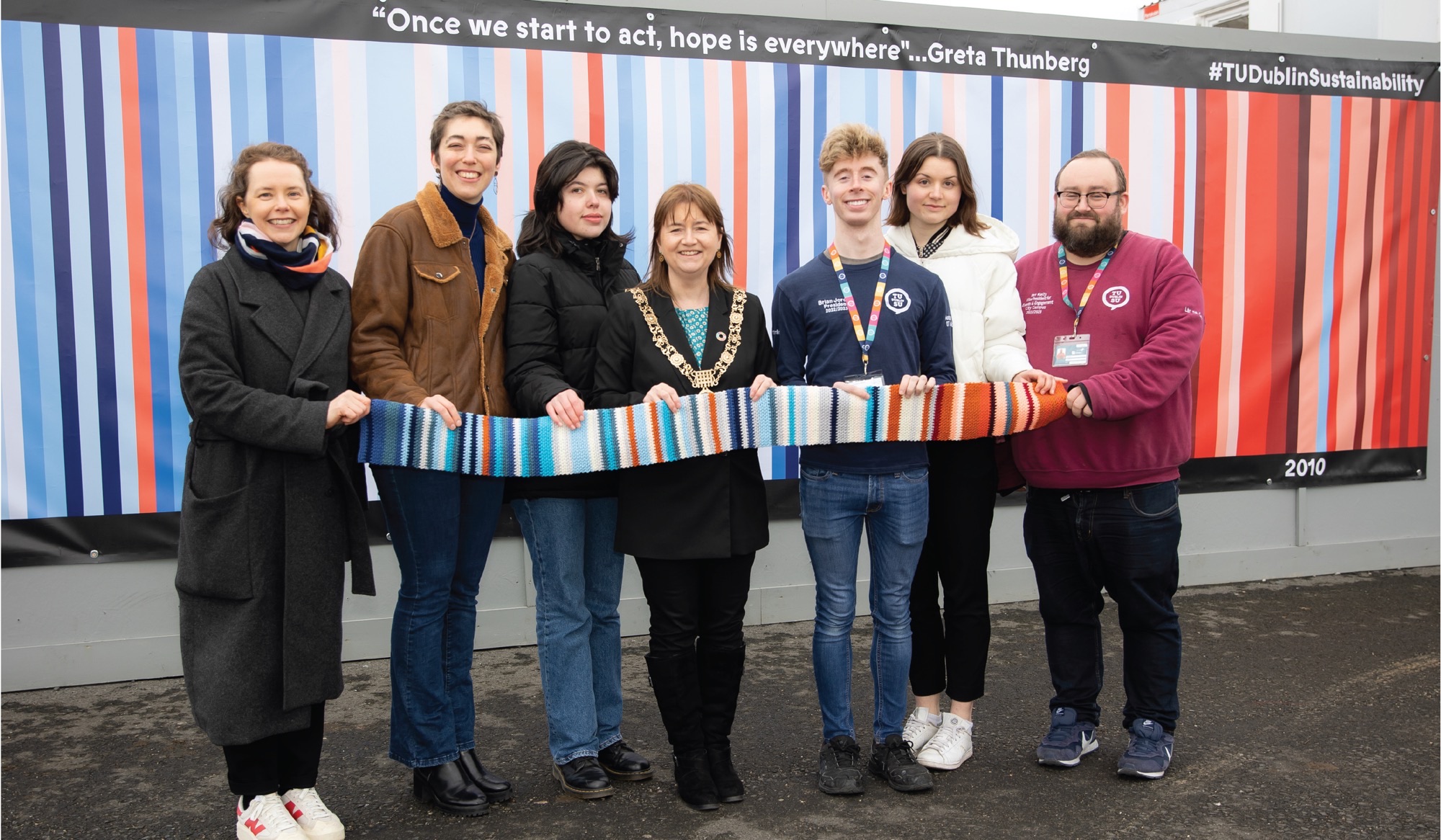
Green Week Launch TU Dublin
Impact Achieved
Contribution to National Climate Action 2023 targets
Under the National Climate Action Plan 2023 targets, Ireland is committed to reduce greenhouse gas (GHG) emissions by 51% in 2030 and reach net zero by no later than 2050. The plan states that all buildings will need to switch to heat pumps or district heating by 2050, meaning that the gas grid will no longer supply existing homes and commercial premises, and sets interim targets to increase the number of terawatt hours (TWh) from district heating to 0.8 TWh by 2025 and 2.7 TWh by 2030.
The benefits and impact of being connected to a district heating scheme include lower emissions and greater use of renewable energy, improved air quality and better Building Energy Ratings (BERs). District heating systems are future-proofed to provide heat from multiple renewable sources, and heat from district heating networks is typically cheaper than alternative heating methods.
It is estimated that in this first phase of the Tallaght District Heating Network delivery, the carbon emissions reduction in the Tallaght area will be over 1,500 tonnes CO2 equivalent per year. The carbon emissions savings on TU Dublin’s Tallaght campus amounts to a reduction of approximately 400 tonnes of CO2e per year.
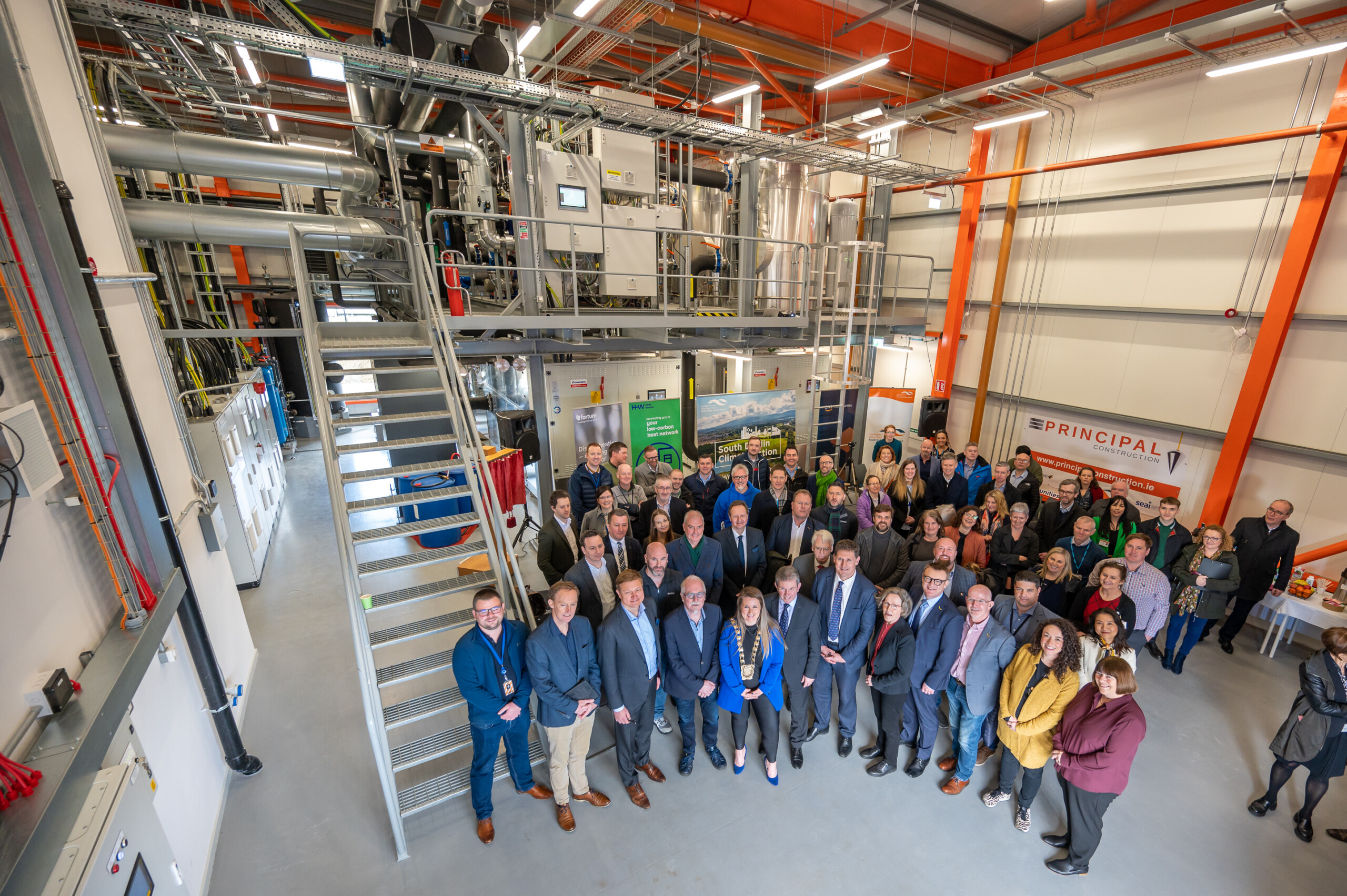
Launch of Tallaght District Heating System
The Tallaght project is an exemplar project that can be replicated nationally using waste heat (data centres, industrial process, waste-to-energy). The geothermal investigations and project development on the Grangegorman campus has the potential to showcase the potential of deep (2-4km) geothermal energy, a technology well established on continental Europe but not exploited in Ireland to date. On the geothermal energy project, we continue to work closely with GSI who are drilling a second test well on the Tallaght campus (Summer 2023).
UN Sustainable Development Goals
These initiatives demonstrate positive action in support of SDG11 Sustainable Cities and Communities, and SDG13 Climate Action. As a result, among Irish HEIs, TU Dublin ranked 2nd under SDG 13 Climate Action and ranked second highest in SDG11 Sustainable Cities and Communities in the Times Higher Education SDG Impact Rankings. Our success in the SDG rankings and on other indicators, demonstrates how we are realising our strategic ambition to be ‘A Beacon for Sustainability’. Our ambition, as stated in the TU Dublin Climate Action Roadmap is to be one of the world’s most sustainable universities.
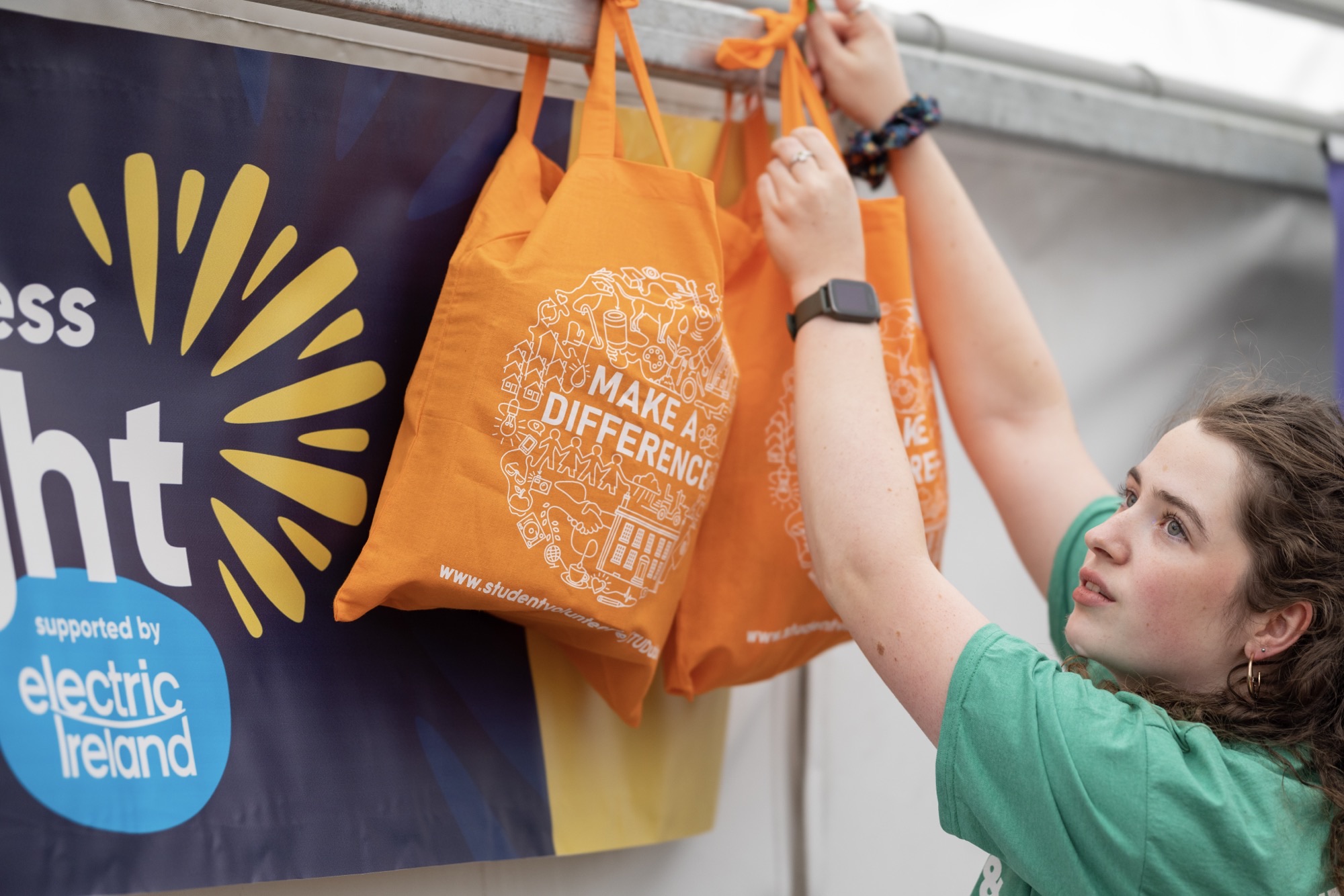
Sustainability Education TU Dublin
Dissemination
The university continues to build and disseminate knowledge and skills in low carbon and geothermal energy, including through the development of a range of undergraduate and postgraduate programmes, upskilling programmes and apprenticeship education, aimed at accelerating the transition to a Zero Carbon Economy. The School of Architecture, Building and Environment is also currently leading a Human Capital Initiative (HCI) funded project to reconfigure and revise the architecture curriculum to empower future graduates with the knowledge, skills and mind-set to address the sustainability challenges faced by society.
The first ‘National Geothermal Energy Summit’ was held at TU Dublin, Grangegorman, in July 2022, with a second meeting scheduled to take place in Grangegorman in Oct 2023.
RTÉ produced a documentary on these two pioneering projects as part of its Ecoeye series. A recording of the documentary, titled ‘Keeping the Heating On’, is available on the RTE player.
What we learned
The National Heat Study has identified that district heating has the potential to provide as much as 54% of building heat demand in Ireland. As it is flexible and technology agnostic, it allows for better uptake of renewable energy on a larger scale. It is estimated that 29% of all electricity demand in Ireland will come from data centres by 2028. Data centres are energy intensive but there is great potential to reduce the carbon impact of these facilities by recycling the waste heat that is constantly generated from them. Our collaboration with the Tallaght District Heating System project demonstrates how the by-product of energy intensive datacentres can be redistributed to provide low-cost and low-carbon heat to local users.
The chosen technology at our Grangegorman campus is a deep-bore open geothermal doublet, extracting heat at a depth of 2.5km. It is expected to provide valuable lessons for the development of an indigenous geothermal industry in the future. The findings of 38 degrees at a depth of 1km confirmed that the project has massive potential to be replicated beyond the campus. It also provides TU Dublin researchers the chance to study replicability and give students the opportunity to develop new urban services and products and the skills necessary to engage with this industry. Sectoral risk arises from anticipated increased reliance on the national grid to decarbonise, and therefore, to distribute risk, a portfolio of additional measures to decarbonise our activities must also be developed in parallel.